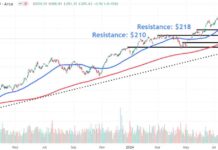In today’s fast-paced world, where information is key, the trading floor has become a hub for the world’s biggest news junkies. It is here that information from every corner of the globe is dissected and analyzed the moment it emerges. Whether it’s news of political coups or company earnings reports, every piece of information has the potential to impact the price of something. With a seemingly never-ending series of elections taking place this year, market-makers and investors alike are presented with a plethora of opportunities to capitalize on the outcomes of these elections.
Understanding the Risks and Rewards of Investing in Elections
As electorates from around the world head to the polling booths, investors are faced with the tantalizing prospect of trading on the results. The outcome of elections can have a significant impact on financial markets, as they can lead to changes in government policies, regulations, and overall market sentiment. However, investing in elections comes with its own set of risks and rewards that investors need to carefully consider.
One of the main risks of investing in elections is the uncertainty that comes with predicting the outcome. Elections are inherently unpredictable, and even the most seasoned analysts can get it wrong. A surprise win by a candidate or party can lead to unexpected market reactions, causing investors to incur losses. On the other hand, successfully predicting the outcome of an election can lead to significant profits for investors who have positioned themselves accordingly.
Evaluating the Impact of Elections on Financial Markets
The impact of elections on financial markets can vary depending on a variety of factors, including the political landscape, economic conditions, and investor sentiment. In general, elections can lead to increased volatility in financial markets, as investors react to the potential changes in government policies and regulations. This volatility can create both risks and opportunities for investors looking to capitalize on market movements.
In addition to volatility, elections can also lead to changes in investor sentiment. A change in government leadership or policies can have a significant impact on how investors perceive the market, leading to shifts in asset prices and overall market performance. Understanding these shifts in sentiment is crucial for investors looking to make informed decisions about their investment strategies.
Strategies for Investing in Elections
When it comes to investing in elections, there are a variety of strategies that investors can employ to mitigate risks and maximize rewards. One common strategy is to diversify investments across different asset classes, regions, and sectors. By spreading out investment holdings, investors can reduce their exposure to any single election outcome and minimize potential losses.
Another strategy is to conduct thorough research and analysis of the political landscape leading up to an election. By understanding the key issues, candidates, and potential outcomes of an election, investors can make more informed decisions about their investment strategies. This research can also help investors identify potential opportunities to capitalize on market movements resulting from the election outcome.
Ultimately, investing in elections can be a high-risk, high-reward endeavor that requires careful consideration and strategic planning. By understanding the risks and rewards associated with investing in elections, investors can position themselves to make informed decisions and capitalize on the opportunities presented by these key political events.

















